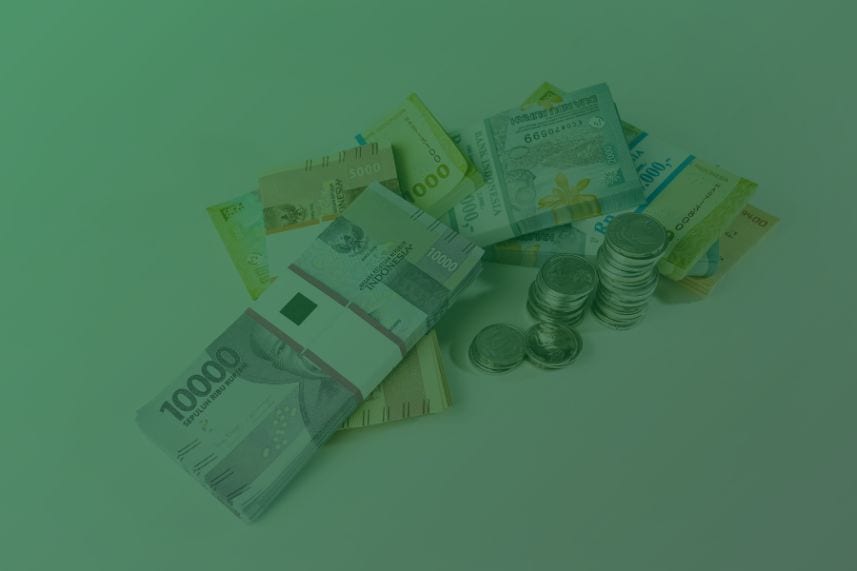The term waqf has been widely recognized by Muslims. Waqf itself has been an Islamic law since the time of Prophet Muhammad. However, cash waqf is not very well known and familiar to Muslims, especially Indonesian Muslims. Popular waqf is still limited to land and buildings used as places of worship, education, or other social buildings.
Waqf in the form of cash has only recently been heard of. The benefits of cash waqf are much broader than that of immovable property, touching the sectors of education, research, health, economic empowerment, and so on. Waqf with cash for Muslims in Indonesia is relatively new, so its implementation has not been maximized and has not been felt by the wider community.
Definition of Cash Waqf
The term waqf may be widely known by Muslims in the country. However, what exactly does the term waqf mean? In Islam, the definition of waqf is to hold property and use its benefits for good purposes or other similar things.
The benefits of waqf are intended for public purposes, especially those related to religion. For example, building a mosque for a place of worship, drilling and making wells whose water is used for the benefit of the community, and so on.
It should be noted that waqf is not only about immovable property such as buildings, land, and others. Rather, waqf can also be done with movable assets, such as money. In this case, cash waqf is waqf done in the form of cash.
Read also: Mother as a Role Model for the Family, Dompet Dhuafa Presents Waqf for Mothers
Cash waqf can be seen as a form of good deeds similar to sadaqah. However, there are differences between the two. When we perform cash alms, the money (assets) we give as well as the proceeds from the management of the cash alms can all be transferred to the people who are entitled to receive them.
Meanwhile, if we do cash waqf, the money that we waqf cannot be transferred to others. The only thing that can be transferred is the result of the waqf management. For example, we do cash waqf, then the money is invested. Now, only the investment returns can be given to the rightful beneficiaries.

The Law of Cash Waqf
According to the Maliki school of thought, cash waqf is permissible. This decision is based on the benefits of money that are still within the scope of the Prophet Muhammad’s hadith. The benefits of money are compared to armor, animals, and other assets that have been recognized by the Prophet.
The qiyas has fulfilled the shari’at ‘illah (cause of similarity) found in the qyas and the qiyas (maqis and maqis ‘alaih). The items are both movable and impermanent objects that can be damaged within a certain time. Instead, cash waqf, if managed professionally, is likely to last forever.
Read also: Waqf for the Deceased, How is the Law?
In this era, money does not only function as a medium of exchange, but is also considered an object or commodity that is traded in various banks and money changers. In other words, money has the same position as other tradable objects, such as land.
The Indonesian Ulema Council (MUI) has also issued a fatwa on the law of cash waqf, which is permissible. In the fatwa issued on May 11, 2002, MUI stated that cash waqf can only be distributed and used for things that are permissible in sharia. “The principal value of cash waqf must be guaranteed, it cannot be sold, donated, and or inherited.”
Benefits of Cash Waqf
Compared to the waqf of immovable objects, cash waqf provides more benefits. What does this look like? For example, cash waqf is channeled into Islamic investment instruments such as state sukuk with the aim of building infrastructure in underdeveloped areas.
Thus, the proceeds of this waqf can build more decent roads, thus facilitating the flow of distribution which will result in reduced distribution costs. This will then lead to better economic development around the underdeveloped areas, which in turn will lead to the development of the national economy. Mashaallah… how vast are the benefits of cash waqf.
This is certainly different from waqf of immovable objects or waqf of physical assets. If we do land or building waqf, then the only people who can benefit from the waqf are the people around the land/building. Unlike the benefits of cash waqf that is channeled into Islamic investment instruments, the benefits can penetrate provincial, even national scale.
Read also: The Virtues of Quran Waqf and Its Benefits
If you are still hesitant, you can read more literature and references about cash waqf on Tabung Wakaf. If you are already convinced to endow money, you can do it through Dompet Dhuafa.
Dompet Dhuafa has been certified as a waqf nazir by the Indonesian Waqf Board since 2005. During that time, Dompet Dhuafa has managed various waqf assets, be it in the form of land, buildings, wells, or money, which have benefited the people in need. To know more details about Dompet Dhuafa’s waqf management, you can visit this page. (RQA)



